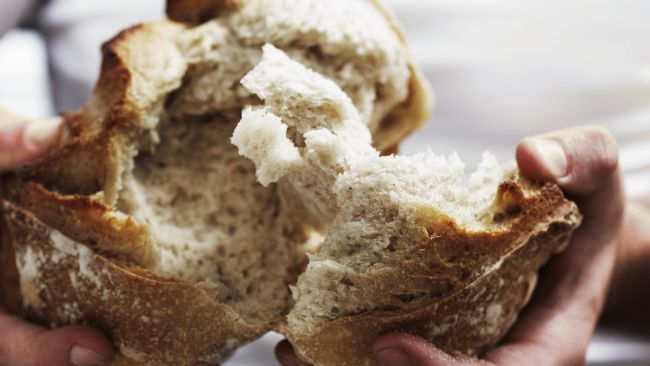I’ve learned over the last year as I’ve worked to complete my Masters of Social Work degree that health and the availability of nutritious food are justice issues with global proportions. Having just completed an extensive research project about international food aid in partnership with a U.S. non-governmental organization for my capstone requirement, I have witnessed first-hand the positive impact nutritious food has on global communities that are affected by chronic hunger. So, when I heard about the recent “Ending Hunger: Compassion Igniting Justice” conference at Christ United Methodist Church in Greensboro, I jumped at the chance to attend. I am so glad that I did.
The conference featured Bread for the World, a Christian organization that works to end domestic and international hunger through research and legislative advocacy from a Christian perspective. Two representatives from Bread for the World, Rev. Lamarco Cable and Nancy Rhodes gave us an overview of why it is important to advocate for ending hunger on a legislative level, including that only 8% of food donations come from charity. Ninety-two percent of resources used to feed the hungry and poor in the U.S. comes from federal funding. That is a large percentage to make up if federal funding for hunger programs declines in the future.
In addition to the introduction to Bread for the World, Rev. Cable also led us through an offering of letters. Instead of just learning, we were also given the opportunity to act. This year, Bread for the World has focused their advocacy on the reform of 1950s era food aid practices, including a call to purchase more food aid in or near the country affected. This would ensure quicker distribution and would benefit the local economies of the countries. Where chronic hunger exists, so does poverty. For the first time, I wrote handwritten letters to my federal representatives.
The conference also focused more broadly on the intersection of our Christian faith and social justice advocacy. As a future student at Duke Divinity School, I soaked up everything that was said. The Rev. Dr. J. Herbert Nelson from the Presbyterian Social Justice Office offered words of wisdom in a workshop about the role of faith in politics, and Rev. Chuck Campbell from Duke Divinity School passionately shared tools to use when preaching for justice. Other workshops included “Social Justice and the Spiritual Life” led by Rev. Frank Dew and “Social Media for Social Justice” led by Rev. Bryan MacFarland.
This event was filled with people who are passionate to live out their call to minister to others in a way that is Christ-like and just. I am so glad I attended, and I recommend everyone check out the Bread for the World website to get involved in the work of ending hunger.

